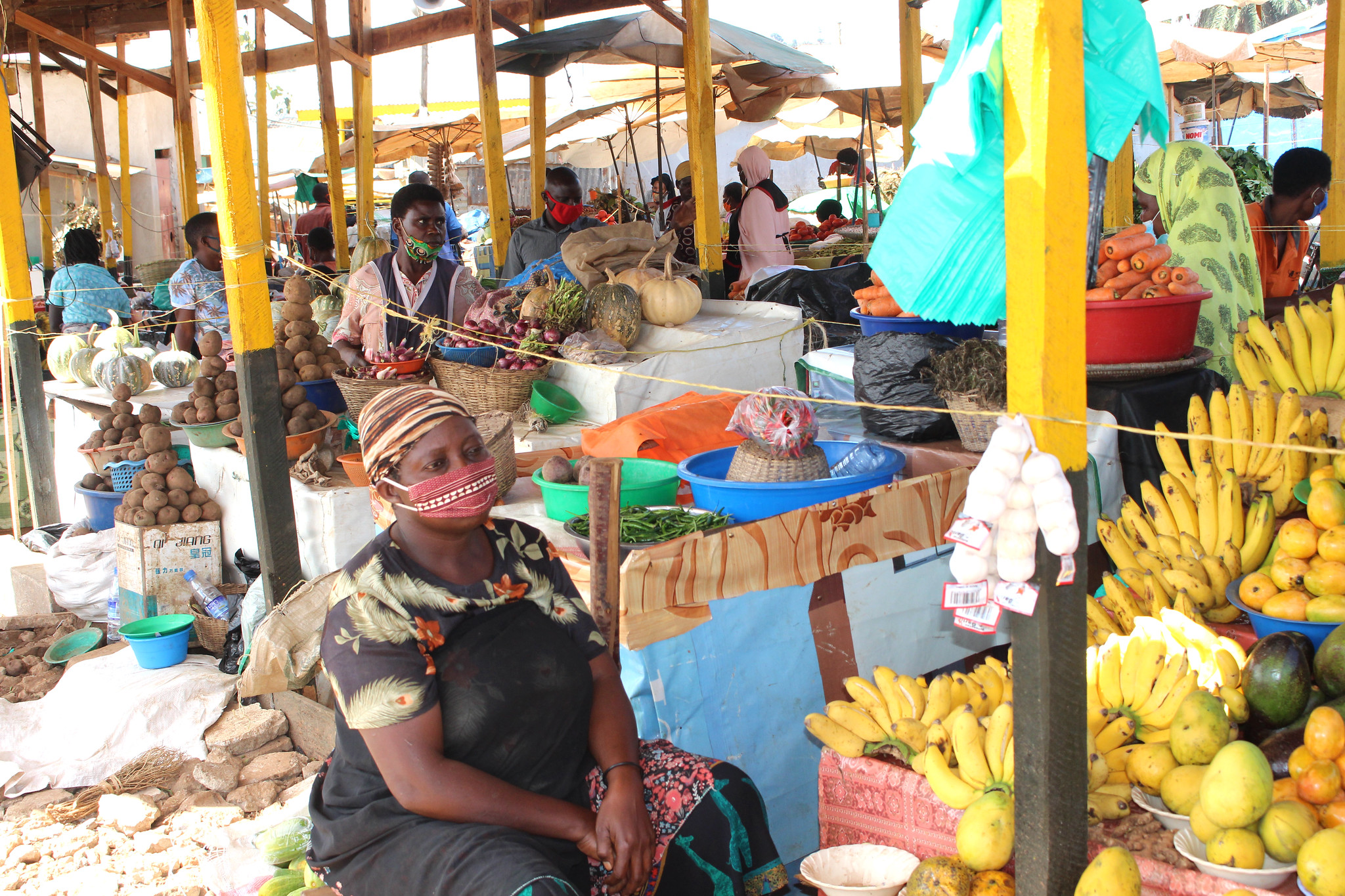
While many studies over the past several years have examined people’s access to and attitudes toward Covid-19 vaccines, few studies in sub-Saharan Africa have looked at whether there were differences in vaccination rates and intention between men and women. In a new study appearing in the journal Frontiers in Global Women’s Health, researchers found that while women and men self-reported similar Covid-19 vaccination rates in 2022, unvaccinated men expressed more intention to get vaccinated than unvaccinated women.
Women tend to have better health-seeking behaviors than men overall. However, most studies relating to Covid-19 vaccination have found that intention has been lower among women. “We wondered whether this would hold true at the uptake level,” says Rawlance Ndejjo, a leader of the new study and an assistant lecturer in the Department of Disease Control and Environmental Health at Makerere University.
The comparable vaccination rates between men and women in the study is “a good thing to see,” adds Lula Chen, research director at MIT Governance Lab (GOV/LAB) and a co-author of the new study. “There wasn’t anything gendered about how [the vaccine] was being advertised or who was actually getting access to it.”
Women’s lower intention to vaccinate seemed to be driven by concerns about vaccine safety, suggesting that providing factual information about vaccine safety from trusted sources, like the Ministry of Health, could increase uptake.
The work is a collaboration between scholars from the MIT GOV/LAB, Makerere University’s School of Public Health in Uganda, University of Kinshasa’s School of Public Health in the Democratic Republic of the Congo (DRC), University of Ibadan’s College of Medicine in Nigeria, and Cheikh Anta Diop University in Senegal.
Studying vaccine availability and uptake in sub-Saharan Africa
The authors’ collaboration began in 2021 with research into Covid-19 vaccination rates, people’s willingness to get vaccinated, and how people’s trust in different authorities shaped attitudes toward vaccines in Uganda, the DRC, Senegal, and Nigeria. A survey in Uganda found that people who received information about Covid-19 from health workers were more likely to be vaccinated, stressing the important role people who work in the health-care system can play in vaccination efforts.
Work from other scientists has found that women were less likely to accept Covid-19 vaccines than men, and that in low- and middle-income countries, women also may be less likely to get vaccinated against Covid-19 and less likely to intend to get vaccinated, possibly due to factors including lower levels of education, work obligations, and domestic care obligations.
Previous studies in sub-Saharan Africa that focused on differences between men and women with intention and willingness to vaccinate were inconclusive, Ndejjo says. “You would hardly find actual studies on uptake of the vaccines,” he adds. For the new paper, the researchers aimed to dig into uptake.
People who trust the government and health officials were more likely to get vaccinated
The researchers relied on phone survey data collected from adults in the four countries between March and July 2022. The surveys asked people about whether they’d been vaccinated and whether those who were unvaccinated intended to get vaccinated, as well as their attitudes toward Covid-19, their trust in different authorities, demographic information, and more.
Overall, 48.5 percent of men said they had been vaccinated, compared to 47.9 percent of women. Trust in authorities seemed to play a role in people’s decision to vaccinate — receiving information from health workers about Covid-19 and higher trust in the Ministry of Health were both correlated with getting vaccinated for men, whereas higher trust in the government was correlated with vaccine uptake in women.
Lower interest in vaccines among women seemed related to safety concerns
A smaller percentage of unvaccinated women (54 percent) said they intended to get vaccinated, compared to 63.4 percent of men. More unvaccinated women said they had concerns about the vaccine’s safety than unvaccinated men, which could be driving their lower intention.
The researchers also found that unvaccinated women and men over 40 had similar levels of intention to get vaccinated — lower intention in women under 40 may have driven the difference between men and women. Younger women could have concerns about vaccines related to pregnancy, Chen says. If this is the case, the research suggests that officials need to provide additional reassurance to pregnant people about vaccine safety, she adds.
Trust in authorities also contributed to people’s intention to vaccinate. Trust in the Ministry of Health was tied to higher intention to vaccinate for both men and women. Men with more trust in the World Health Organization were also more likely to intend to vaccinate.
“There’s a need to deal with a lot of the myths and misconceptions that exist,” Ndejjo says, as well as ensure that people’s concerns related to vaccine safety and effectiveness are addressed. Officials need “to work with trusted sources of information to bridge some of the gaps that we observe,” he adds. People need to be supported in their decision-making so they can make the best decisions for their health.
“This research highlights linkages between citizen trust in government, their willingness to get vaccines, and, importantly, the differences between men and women on this issue — differences that policymakers will need to understand in order to design more targeted, gender-specific public health interventions,” says study co-author Lily L. Tsai, who is MIT GOV/LAB’s director and founder and the Ford Professor of Political Science at MIT.
This project was funded by the Bill & Melinda Gates Foundation.
